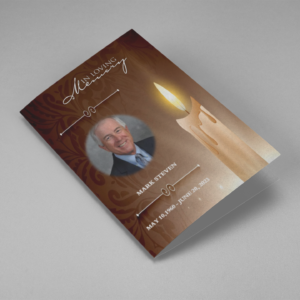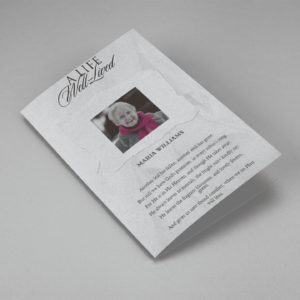Creating an obituary is an important task that commemorates a loved one’s life while informing others of their passing. Writing Effective Obituaries involves a balance of factual details, personal anecdotes, and heartfelt expressions. This guide will help you write a meaningful and memorable obituary.
Understanding the Purpose of an Obituary
An obituary serves multiple functions, including:
- Notifying others of a death: Informing family, friends, and the community.
- Celebrating a life: Highlighting the achievements, passions, and legacy of the deceased.
- Providing service details: Offering information about funeral or memorial services.
When writing an obituary, it’s essential to ensure that it fulfills these purposes while being respectful and concise.
Steps to Write an Effective Obituary
1. Start with Basic Information
Begin the obituary with the essential details:
- Full name of the deceased, including any nicknames.
- Age at the time of passing.
- Date and place of death.
This initial section sets the tone for the rest of the obituary and provides context.
Example:
“John Michael Smith, affectionately known as ‘Mike,’ passed away peacefully at the age of 78 on March 10, 2024, in Chicago, Illinois.”
Include key aspects of the deceased’s life:
- Birth date and place.
- Education and career highlights.
- Personal achievements and hobbies.
While covering these details, focus on aspects that defined their character and contributions.
Example:
“Mike was born on July 4, 1945, in Detroit, Michigan. A dedicated educator, he spent over 30 years teaching high school science, inspiring countless students to pursue careers in STEM fields. In his free time, Mike enjoyed woodworking, gardening, and volunteering at his local food bank.”
3. Mention Surviving Family Members
List the immediate family members who survive the deceased and those who preceded them in death.
- Use phrases like “survived by” and “preceded in death by.”
- Maintain a respectful tone and include names if appropriate.
Example:
“Mike is survived by his loving wife of 50 years, Susan; his children, Sarah (James) and Thomas (Emily); and his four grandchildren. He was preceded in death by his parents, Henry and Margaret Smith, and his brother, Richard.”
4. Highlight Personal Qualities
Celebrate the character and values of the deceased.
- Use adjectives and anecdotes to describe their personality.
- Focus on positive traits and memorable moments.
Example:
“Mike’s warm smile and unwavering kindness left a lasting impression on everyone he met. Known for his quick wit and generosity, he had a unique ability to make people feel at ease.”
5. Provide Service Information
Include details about the funeral or memorial services:
- Date, time, and location.
- Any specific requests, such as dress code or donations in lieu of flowers.
Example:
“A celebration of Mike’s life will be held on Saturday, March 15, 2024, at 2 PM at Grace Lutheran Church, 123 Main Street, Chicago, IL. In lieu of flowers, the family requests donations to the Chicago Food Bank in his memory.”
6. Add a Closing Note
End the obituary with a heartfelt statement or a quote that reflects the deceased’s values.
- This can include a message of gratitude or a favorite saying.
Example:
“Mike’s family would like to thank the staff at Mercy Hospital for their compassionate care. As Mike always said, ‘The best way to live is to make a difference in someone else’s life.’ He will be deeply missed.”
Tips for Writing a Thoughtful Obituary
Be Genuine and Authentic
Write from the heart, focusing on what made your loved one unique. Avoid exaggeration or clichés.
Keep it Concise
While it’s tempting to include everything, remember that obituaries are often constrained by space or word limits. Aim for brevity while covering the essentials.
Use a Respectful Tone
Avoid including controversial or divisive details. The goal is to honor the deceased and provide comfort to the readers.
Proofread Thoroughly
Double-check for spelling errors, especially names and dates, to ensure accuracy. Enlist a friend or family member to review the draft.
Common Mistakes to Avoid
Overloading with Details
An overly long obituary can lose its impact. Focus on meaningful highlights instead of listing every detail.
Using Complex Language
Keep the language simple and clear. The obituary should be easy for everyone to read and understand.
Omitting Key Information
Ensure you include all necessary details, such as service information and family members’ names.
Sample Obituary Template
Opening:
[Full Name], [age], of [location], passed away on 2025 at [place of death].
Biographical Details:
[Name] was born on 2025 in [place]. [He/She] graduated from [school] and worked as a [profession] for [number] years. [He/She] was known for [personal qualities or hobbies].
Family:
[Name] is survived by [list of family members]. [He/She] was preceded in death by [list of family members].
Service Information:
A [type of service] will be held on 2025 at [location]. [Details about donations or special requests].
Closing Note:
[Insert a heartfelt statement or quote].
Funeral Program Templates
-
Searching for a White Roses And Black Ribbon Funeral Program Template that is easy to print and has a cutting-edge look? White Roses And Black Ribbon Funeral Program Template is the Perfect decision because it measures 8.5”x 11”.
- No Limitation on Content, Edit anything
- Edit anytime – unlimited revisions even after purchased
- Get a printable PDF downloaded to get it printed on your own
-
Searching for a Realistic Burning Candle Funeral Program Template that is easy to print and has a cutting-edge look? Realistic Burning Candle Funeral Program Template is the Perfect decision because it measures 8.5”x 11”.
- No Limitation on Content, Edit anything
- Edit anytime – unlimited revisions even after purchased
- Get a printable PDF downloaded to get it printed on your own
-
Searching for a Bulltongue Arrowhead Funeral Program Template that is easy to print and has a cutting-edge look? Bulltongue Arrowhead Funeral Program Template is the Perfect decision because it measures 8.5”x 11”.
- No Limitation on Content, Edit anything
- Edit anytime – unlimited revisions even after purchased
- Get a printable PDF downloaded to get it printed on your own
-
Searching for a Grey Floral White Tiny Flower Funeral Program Template that is easy to print and has a cutting-edge look? Grey Floral White Tiny Flower Funeral Program Template is the Perfect decision because it measures 8.5”x 11”.
- No Limitation on Content, Edit anything
- Edit anytime – unlimited revisions even after purchased
- Get a printable PDF downloaded to get it printed on your own
-
Searching for a Red Flower Dark Soil Funeral Program Template that is easy to print and has a cutting-edge look? Red Flower Dark Soil Funeral Program Template is the Perfect decision because it measures 8.5”x 11”.
- No Limitation on Content, Edit anything
- Edit anytime – unlimited revisions even after purchased
- Get a printable PDF downloaded to get it printed on your own
-
Searching for a Pink Rose Frame Floral Oval Badge Funeral Program Template that is easy to print and has a cutting-edge look? Pink Rose Frame Floral Oval Badge Funeral Program Template is the Perfect decision because it measures 8.5”x 11”.
- No Limitation on Content, Edit anything
- Edit anytime – unlimited revisions even after purchased
- Get a printable PDF downloaded to get it printed on your own
-
Searching for a Brown and White Classic Funeral Program Template that is easy to print and has a cutting-edge look? Brown and White Classic Funeral Program Template is the Perfect decision because it measures 8.5”x 11”.
- No Limitation on Content, Edit anything
- Edit anytime – unlimited revisions even after purchased
- Get a printable PDF downloaded to get it printed on your own
-
Searching for a Purple Elegant Watercolor Funeral Program Template that is easy to print and has a cutting-edge look? Purple Elegant Watercolor Funeral Program Template is the Perfect decision because it measures 8.5”x 11”.
- No Limitation on Content, Edit anything
- Edit anytime – unlimited revisions even after purchased
- Get a printable PDF downloaded to get it printed on your own
-
Searching for a Cream and Green Photo Obituary Program that is easy to print and has a cutting-edge look? Cream and Green Photo Obituary Program is the Perfect decision because it measures 8.5”x 11”.
- No Limitation on Content, Edit anything
- Edit anytime – unlimited revisions even after purchased
- Get a printable PDF downloaded to get it printed on your own
-
Searching for a Cream Simple Elegant Photo Church Program that is easy to print and has a cutting-edge look? Cream Simple Elegant Photo Church Program is the Perfect decision because it measures 8.5”x 11”.
- No Limitation on Content, Edit anything
- Edit anytime – unlimited revisions even after purchased
- Get a printable PDF downloaded to get it printed on your own
-
Searching for a Grey Classic Minimalist Funeral Program Template that is easy to print and has a cutting-edge look? Grey Classic Minimalist Funeral Program Template is the Perfect decision because it measures 8.5”x 11”.
- No Limitation on Content, Edit anything
- Edit anytime – unlimited revisions even after purchased
- Get a printable PDF downloaded to get it printed on your own
-
Searching for a White Classic Funeral Program Template that is easy to print and has a cutting-edge look? White Classic Funeral Program Template is the Perfect decision because it measures 8.5”x 11”.
- No Limitation on Content, Edit anything
- Edit anytime – unlimited revisions even after purchased
- Get a printable PDF downloaded to get it printed on your own
Free Funeral Program Template Help Video
Frequently Asked Question On Writing Effective Obituaries
What is the purpose of an obituary?
An obituary serves to notify others of a person’s passing, celebrate their life, and provide details about funeral or memorial services.
How long should an obituary be?
The length depends on the publication and purpose. A typical obituary ranges from 200-500 words, but detailed obituaries for websites or memorial booklets can be longer.
Can I include personal anecdotes in an obituary?
Yes, personal anecdotes help make the obituary more heartfelt and memorable. Focus on stories that highlight the deceased’s character or special moments in their life.
Should I mention the cause of death?
Mentioning the cause of death is optional. Some families prefer to keep it private, while others include it for transparency or to raise awareness.














Leave a Reply